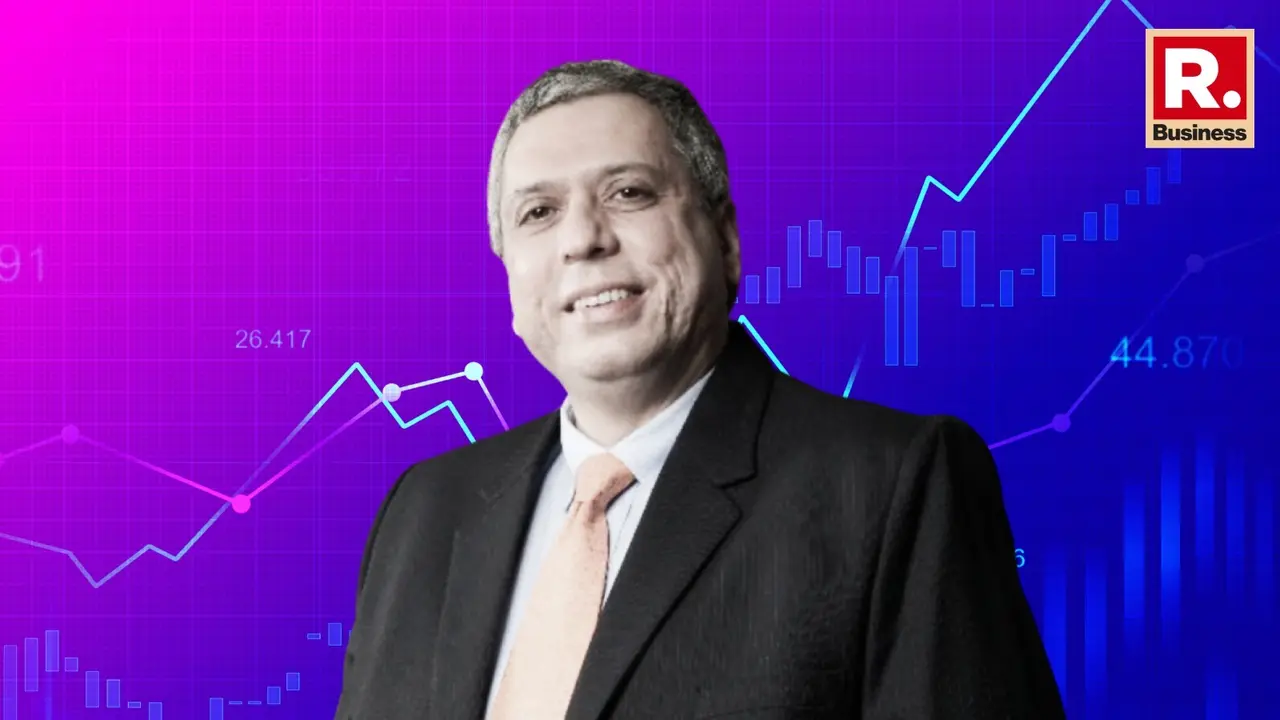Updated 8 April 2025 at 08:58 IST
Oversold Markets Will Bounce, But How Durable Will That Be? Asks Ace Analyst Ajay Bagga
As US President Trump pushes for an additional 50% tariff on Chinese imports, financial markets are reacting sharply, Ace Analyst Ajay Bagga warns.
- Republic Business
- 4 min read

(By Ajay Bagga)
As US President Donald Trump pushes for an additional 50% tariff on Chinese imports, financial markets are reacting sharply, and experts warn the consequences could be long-lasting.
Market expert Ajay Bagga painted a grim picture of the current global environment. "We live in a difficult time. That is an understatement, but a good starting point," he said.
End of "Pax Americana"
Bagga explained that the shift from "Pax Americana" to an "America First" approach has already had significant consequences. "Jettisoning the benefits of 'Pax Americana' for an 'America First' reordering of global flows, structures and relations, has tightened financial conditions and led to trillions of market cap losses."
Advertisement
Even if Trump eases back on some of his more extreme trade threats, Bagga believes the damage is already done. “Even if Trump eventually backs down from his most aggressive tariffs, the damage to international relations, economies, trade and markets is likely to be lasting. You can’t put the genie back in the bottle."
China's Response and America's Strategy
According to Bagga, China is unlikely to accept Trump’s latest ultimatum without suffering a significant blow to its global image. "China has been served an ultimatum that is not agreeable without serious loss of face. That is an impossible public loss of face that no sovereign nation would agree to, leave aside a competing hegemon, that is seeking to oust the established superpower."
Advertisement
In response, China is pulling out multiple strategies to defend its position. "So China is marshalling state-owned actors to buy its stocks, is injecting liquidity in its markets, will devalue its currency and is seeking to sign accords with Europe to the Global South."
Meanwhile, the U.S. is looking to strengthen ties with other trade partners. "The US is offering an alternative vision, by starting senior-level negotiations with Japan to strike a deal with a more publicly compliant trade partner.”
Market Uncertainty: What's Next
Bagga believes the U.S. has taken on too many battles at once. “In its exuberance to break things early… the 47th POTUS and his team have opened too large a front, treating friends and foes alike."
He warned that the broad approach could backfire. "A broad barrage of universal and reciprocal tariffs will lead to: Most nations scrambling to negotiate a deal. Lasting damage to the rule of law and multilateral institutions. China unleashing all its power to carve out its own sphere of influence, from Payment systems to currencies to trade to developmental linkages and patron-client networks."
Still, Bagga suggested the worst may have already arrived. "We are probably past 'Peak Uncertainty' and markets should see some plateauing soon as we cross the 'worst is here' stage. Oversold markets will bounce, but how durable that bounce is, will be a significant question."
Reflecting on the broader shift in the world order, Bagga said, "The world order, that stabilised a post-WWII destroyed global fabric, has been subjected to organised chaos at an unprecedented scale. The new order has to emerge."
He concluded with a sobering assessment of the changing dynamics in global trade and power. "The genie is out and it cannot be bottled again in the old bottle. Disorder and heightened uncertainty, with unknowable and unknown risks blindsiding policymakers and investors alike, is the order of the times."
And in a nod to long-term resilience, Bagga added, "Warren Buffett, sitting on $350 billion of cash, was once more the best-prepared investor in the world. Class is permanent, Form is a blessing that visits us from time to time."
Global Markets on Monday
U.S. stocks had a wild ride on Monday after President Donald Trump threatened to raise tariffs even higher, leaving investors uncertain about his true intentions.
The S&P 500 ended the day down 0.2% after swinging between big losses and gains. The Dow Jones dropped 349 points, or 0.9%, while the Nasdaq managed a small gain of 0.1%.
Earlier, the Dow had fallen as much as 1,700 points before rebounding nearly 900 points. The S&P 500 also jumped from a 4.7% loss to a 3.4% gain before settling.
Global markets were hit hard, with Hong Kong stocks plunging 13.2%—their worst drop since 1997. Oil prices slipped below $60 a barrel for the first time since 2021, and Bitcoin fell below $79,000 after hitting a record high earlier this year.
Published By : Anubhav Maurya
Published On: 8 April 2025 at 08:54 IST
